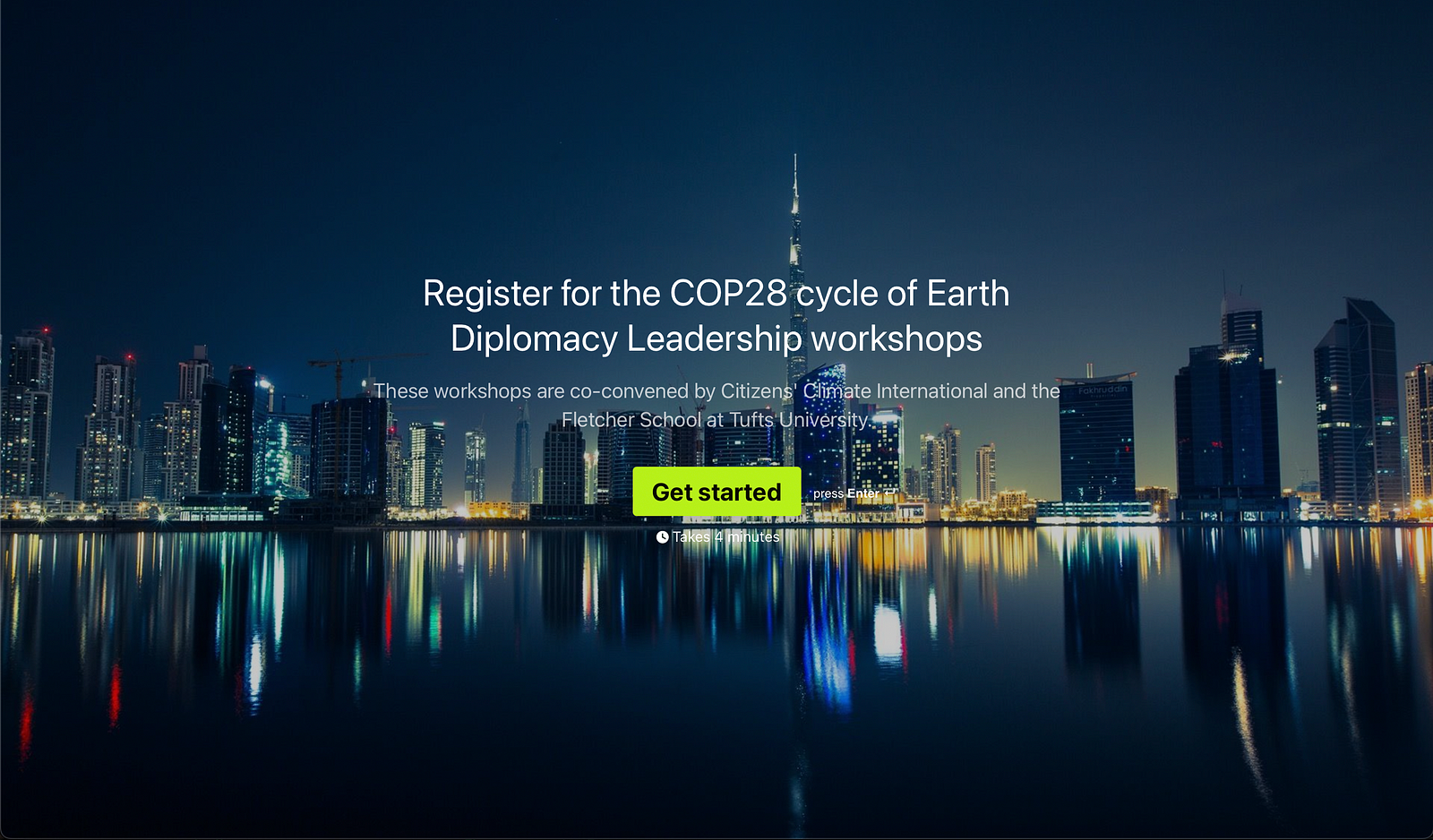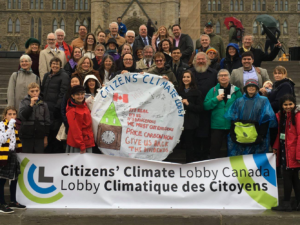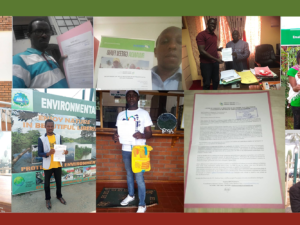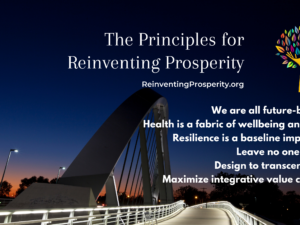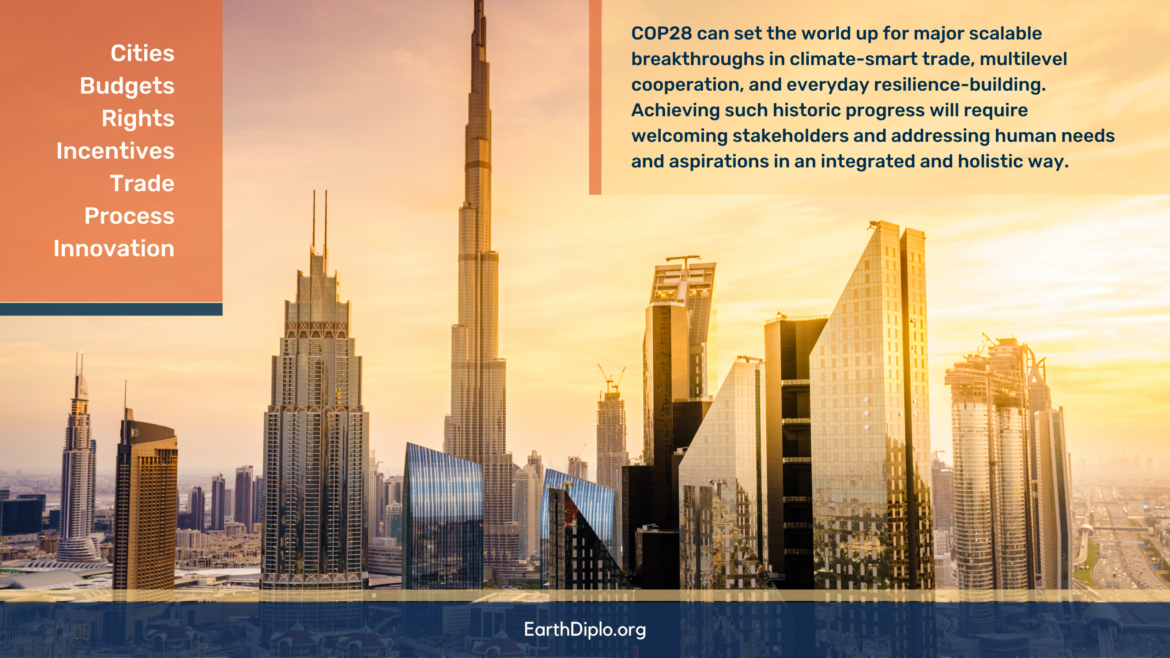
Review of preliminary insights emerging from pre-COP28 Earth Diplomacy Leadership workshops
The Pre-COP28 Earth Diplomacy Leadership sessions have raised important insights about the global negotiating process, about what is at stake, what we know about emerging trends, and practical levers for upgrading our local, national, and overall global climate crisis response.
The United Nations Climate Change negotiations serve a clear overarching mandate:
“prevent dangerous anthropogenic interference with the climate system.”
Chapter 4 of the 6th Assessment Report (AR6) finds that overshooting 1.5ºC will make it harder to achieve climate-resilient development, even if the overshoot is partially reversed through carbon drawdown. Chapter 4.6.2 reads, in part:
“Overshoot has been found to lead to irreversible changes in thermosteric sea level (Tokarska and Zickfeld, 2015; Palter et al., 2018; Tachiiri et al., 2019), AMOC (Palter et al., 2018), ice sheets, and permafrost carbon (Sections 4.7.2 and 5.4.9) and to long-lasting effects on ocean heat (Tsutsui et al., 2006)”
This means critical regulating structures within the climate system may be lost, increasing the prevalence and cost of devastating impacts, and making it harder to restore a livable or stable climate, even if we learn to reabsorb all industrial, agricultural, and transport emissions.
The first two Pre-COP28 sessions discussed, among wider insights:
- The negotiations are multilayered, multifaceted, and call for an “integrated and holistic” response to the threat of dangerous climate change.
- Nationally Determined Contributions will need to be upgraded based on the first Global Stocktake, consideration of national capabilities, international cooperative arrangements, and emerging pathways to mutual, reciprocal, and sustainable value-creation.
- Sharing insight that helps to expand opportunities for high-ambition consensus is the most valuable activity for all COP attendees (Party, Observer, UN Staff, or Media) while the negotiations are taking place.
- A key task the COP28 may now be facing, as record heat changes perspectives on the urgency of action, is how to move from “dual strand development” (relying on dirty industry to achieve enhanced wellbeing) to climate-resilient development (aligning enhanced wellbeing with clean, sustainable practices).
- Costs of adaptation are already accelerating; climate finance goes disproportionately to mitigation, which is considered more investable. Given that both mitigation and adaptation finance need to expand, adaptation finance may need to be 100 times higher within a few years, to avoid serious destabilization of nations and regions.
- Climate change and climate action will both exacerbate inequity, if we fail to enact a just transition, across all relevant areas of action.
- Food systems are severely under stress already, and likely to face increasing risk as critical elements of the Earth system unravel.
- Climate destabilization is also destabilization of economies, societies, and countries.
- Involuntary displacement due to climate change-driven impacts — including both sudden-onset shock events and slow-onset, enduring system-level disruptions — is accelerating across the world. Without some cooperative international action to change this, human rights will be at risk in nearly every country around the world.
- Whatever is decided by the COP28, the operational tools, systems, standards, and incentives, that allow for accelerated activation of climate-resilient development strategies will determine our chances of success — locally and globally.
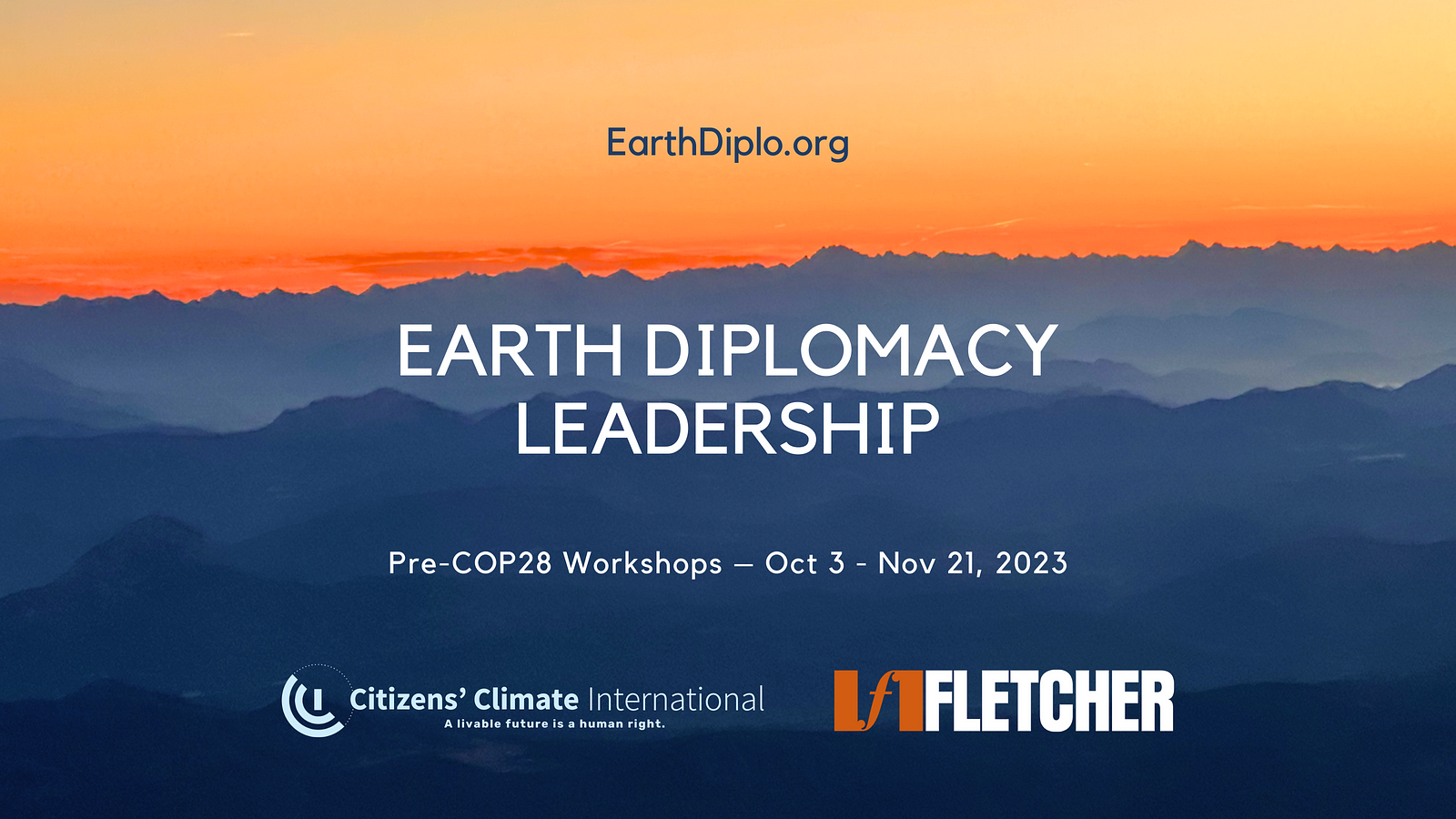
For the full overview of emerging insights, go to:
In this informal check-in, we discussed emerging trends among local policy actors and non-Party stakeholders. These include, but are not limited to:
- City-regional cooperation on food systems;
- Green budgeting — for instance, the example of the City of Milan, aligning its municipal budget with the SDGs, which then allowed restructuring of teams and departments for greater efficiency, creating fiscal space and driving progress;
- Subnational governments cooperating across borders;
- The role of local and regional governments in supporting transition justice, by prioritizing inclusion, access to sustainable finance, infrastructure improvements, and community-level quality of life outcomes.
C40 Cities, the Cities Climate Finance Leadership Alliance, ICLEI, and the Local Governments and Municipal Authorities Constituency (LGMA) constituency, which works to formalize information-sharing and the role of local policy in shaping national priorities, were also cited as examples.
Indigenous Peoples and Local Communities (LCIP) are also invited to contribute to the Summit that will open this year’s UNFCCC negotiations. There is increasing understanding about the need to protect human rights as an overarching priority, and how doing so can raise overall ambition and ensure a more efficient timeline to climate-resilient development for all. At COP28, it is expected these discussions will affect not only the Loss and Damage Fund, but also the design of conservation and mitigation policy, land stewardship-related policies and investments, and the more intentional alignment of upgraded, socially just and inclusive NDCs with climate-related fiscal stability questions.
There was concern about how climate change impacts can make already vulnerable communities and regions more vulnerable to organized criminal activity. Some describe coups d’etat and violent extremists movements in the Sahel region as being linked to worsening climate-related deprivation and instability. It is also now well documented that climate-induced migration leads to large populations of unsheltered people becoming highly vulnerable to human trafficking and other predatory activities of criminal networks.
The risk of authoritarian and corrupt tendencies among regimes empowered to respond to crisis can be reduced by connecting Earth jurisprudence, the rights of nature, human rights, and climate-resilient development into an integrated and holistic agenda for good-faith governance and international peace and security. Recognizing the role of stakeholders sheds light on what is at stake in high-level decision-making, and can make public authorities as well as industry more accountable to those they are meant to serve.
Another issue covered in brief in this informal check-in was geo-engineering or solar radiation management (SRM). There are many threads to this globally controversial issue:
- Can the release of particulate matter into the atmosphere and/or ocean ever be more than a new form of pollution?
- Are chemical reaction-informed fluid dynamic modeling systems at science-grade now, considering this would not be modeling observable climate dynamics but unprecedented atmospheric and ocean system anomalies? Or will we need quantum computing capabilities for that?
- What happens if a country attempts to break the global moratorium and takes action that could have devastating and costly effects on others? What mechanisms for containment or coordinated global response are currently active in international law?
- Is SRM feasible only as a last-worst option, and can decisions be taken that ensure it will not be used to permit or prolong global heating pollution?
A clear overall takeaway from the first two sessions and the informal check-in is that we are now living through a perilous period of practical mismatch between the urgent need for systems transformation (made clear not only by the science, but by active devastation already being experienced in every region) and the legacy structure and priorities of key institutions for high-level decision-making.
- We will need to reshape our economies, while expanding the economic and political empowerment of people and communities.
- Getting to sustainable outcomes will likely require far more inclusive processes of shared local and global innovation than have been available historically.
- Technological innovation will not be enough; institutional and process innovation are also needed to accelerate systems transformation.
In our 3rd session, on Thursday, October 19, we will focus on the mutual gains approach to negotiation. The workshop will be led by Mieke van der Wansem, a recognized leader in mutual gains negotiation strategies and Director of Programs for The Fletcher School’s Center for International Environment and Resource Policy.
If you would like to join, you can register for the Earth Diplomacy Leadership workshops at climate-intl.typeform.com/edli-cop28
